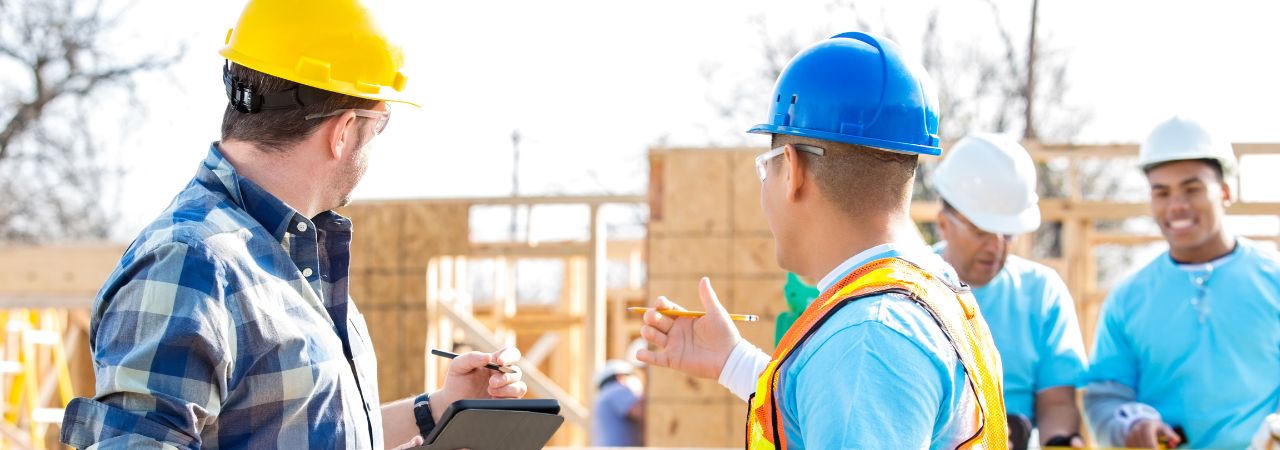What Is Construction Management?

Construction management is the process of planning, coordinating, and supervising construction projects from start to finish. A construction manager is like the captain of a ship, guiding the team through challenges and making sure the project stays on course. This job involves dealing with contractors, engineers, architects, laborers, and clients. With so many people involved, communication can be tricky.
Why Communication Often Fails in Construction
Construction sites are busy, noisy, and sometimes chaotic. Everyone is focused on doing their part. But without clear communication, problems can arise. Here are some common reasons why communication breaks down:
- Lack of Clarity – Instructions are not always clear. If someone misunderstands a task, it can lead to rework.
- Too Many Channels – Messages may come via phone, text, emails, or in person. Important details can be missed or lost.
- Language Barriers – On international projects, workers may speak different languages, leading to confusion.
- No Feedback Loop – Sometimes, workers are not encouraged to ask questions or give feedback.
Busy Schedules – With tight timelines, there may be little time set aside for proper meetings or discussions.
The Importance of Clear Communication

When communication works well, construction projects move forward smoothly. Everyone knows their tasks, safety is improved, and costly mistakes are avoided. Here’s why it’s so important:
- Saves Time – Less confusion means fewer delays.
- Saves Money – Avoids rework and prevents errors.
- Improves Safety – Workers are more likely to follow safety rules when they are clearly explained.
- Builds Team Trust – When team members communicate openly, they work better together.
- Keeps Clients Happy – Clear updates reassure clients and keep their expectations in check.
10 Simple but Powerful Communication Strategies
- Hold Daily Briefings: Start the day with a short meeting. Use this time to discuss the day’s goals, safety reminders, and any changes. It sets the tone for the day and ensures everyone is on the same page.
- Use Visual Aids: Many people on site learn better through visuals. Use charts, blueprints, or photos to explain complex ideas. This reduces the risk of misinterpretation.
- Encourage Two-Way Communication: Don’t just give orders—ask for feedback. Allow workers to share their thoughts, concerns, or ask questions. This creates a safer and more respectful work environment.
- Stick to One Platform: Try using one communication platform for sharing updates and documents, like Slack, Trello, or construction-specific apps like Procore. This helps keep messages organized.
- Train in Communication Skills: Not everyone is a natural communicator. Offer training to help supervisors, project managers, and workers improve how they speak, listen, and write.
- Address Conflicts Early: Disagreements can happen. When they do, address them quickly and calmly. Avoiding conflict only makes it worse later.
- Keep It Simple: Use plain, simple language. Avoid technical terms unless necessary, especially when speaking to someone from another team or background.
- Document Everything: Write down important decisions, updates, and agreements. This avoids confusion later and protects you in case of disputes.
- Use Checklists: Checklists help teams stay on track. They can also be used to confirm tasks are complete and up to standard.
10. Celebrate Milestones: When the team reaches a goal—like finishing a phase or working accident-free—acknowledge it. Celebrating progress boosts morale and team spirit.
Tools That Can Help Improve Communication

Modern construction teams can take advantage of several tools to stay connected. Here are some commonly used ones:
- Procore – A construction management software that helps with project updates, drawings, and documents.
- PlanGrid – Allows teams to view blueprints and make notes in real-time.
- Zoom or Microsoft Teams – For remote meetings with clients or team members who can’t be on site.
- WhatsApp or Group Texts – Fast updates and alerts.
- Drones – Can capture real-time views of the site, helping with visual reporting.
Using the right tools can cut down on errors and boost productivity.
The Role of the Construction Manager in Communication
The construction manager is at the heart of communication. It’s their job to make sure information flows smoothly between all parties. Here’s how they can do it effectively:
- Be a Good Listener – Understand the concerns of workers, clients, and contractors.
- Stay Calm Under Pressure – On a stressful site, a calm leader can prevent panic and confusion.
- Adapt to the Audience – Know how to speak to different people: technical terms for engineers, plain language for laborers.
- Lead by Example – Show the team what good communication looks like.
Communicating with Clients
Construction managers don’t just talk to workers—they also talk to clients. This relationship needs careful handling. Clients want regular updates, honest answers, and to feel like they are part of the process.
Here are tips for better client communication:
- Schedule Regular Check-ins – Weekly or bi-weekly calls or meetings help keep clients informed.
- Share Visual Progress – Photos or videos of the project’s progress can reassure clients that work is going well.
- Be Transparent – If there’s a delay or issue, don’t hide it. Explain it clearly and offer a solution.
- Speak Their Language – Avoid technical jargon. Use simple terms they can understand.

Communication and Safety
Clear communication is essential for safety. Workers need to know where dangers are, how to handle tools, and what the emergency procedures are.
Tips for safer communication include:
- Posting safety signs in multiple languages.
- Providing safety briefings at the start of each day.
- Encouraging workers to report hazards without fear of punishment.
- Using walkie-talkies or headsets to stay in touch in noisy areas.
Conclusion
In construction, communication is the glue that holds a project together. From preventing mistakes to building team trust, good communication can make the difference between failure and success. Whether you are a project manager, contractor, or laborer, improving your communication skills is one of the best ways to succeed in your career.
Using clear language, the right tools, and consistent processes can help bridge the gap between people on-site and in the office. Remember, even a small change—like a checklist or morning meeting—can have a big impact.
If you want to take your skills to the next level by learning more about construction management and communication, enrolling in a course can be a smart move. If you want to enroll in this course, Ashford College is the best college in Australia.


